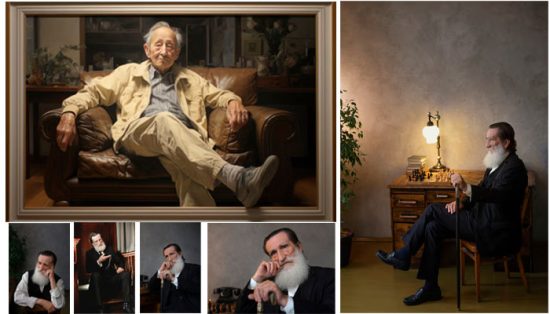Some Nietzsche and a bit of Freud & Jung


By Dr. Marcel de Roos (Psychologist PhD, the Netherlands)
Irvin Yalom, an American psychiatrist, psychotherapist and author, wrote in his novel “When Nietzsche wept” a fictional dramatic story centred around Friedrich Nietzsche. This bestseller in many countries, is situated in nineteenth-century Vienna, and in this novel Nietzsche is subject to a new “talking cure” called psychoanalysis.
Nietzsche (1844 – 1900) was a German philosopher who’s work influenced many modern philosophical thinkers and philosophical schools like existentialism and postmodernism. As he also wrote extensively about “the art of living”, he had a huge influence on the development of psychology. In Yalom’s book “When Nietzsche wept” the author let his Nietzsche say: ”have you lived your life, or have you been lived?; did you love your life, or do you regret it?; have you consumed it entirely?” Nietzsche was a huge proponent of living an authentic life: overcome your fear of being yourself, and embrace your inner strength.
Nietzsche stated that we have a rational, logical Apollonian side and an instinctive, creative Dionysian side. In our life we should be free and responsible and we should embrace our inner chaos, we need to balance both sides. If you are too passive, too reactive then you will feel empty inside. Try to be honest and brave enough to see reality, don’t wait for life to happen and don’t distract yourself. Think independently, create your own path, use others as a source of inspiration, but be your own person.
His expression “amor fati” signified a Dionysian pessimism, you know that life is absurd and useless but nevertheless try to embrace and love your fate. This does not mean to accept life in a fatalistic way, but make your life worthwhile and meaningful.
Nietzsche emphasises to be true to your core values, be proud of yourself, be authentic and figure out your reason to live. Find your personal “why”, one of his most famous quotes is: “he who has a why to live for can tolerate almost any how”.
Another famous quote is “What does not destroy me makes me stronger”. Suffering teaches you lessons and knowledge. Take risks and come out of your comfort zone. Life is a journey and suffering is an indispensable part of that road. It’s painful and it makes you vulnerable but it also transforms you, be like a phoenix and rise from the ashes.
Nietzsche wrote several books, of which “Thus spoke Zarathustra”, “The gay science”, and “Beyond good and evil” are his most well-known.
Sigmund Freud (1856 – 1939), the founding father of psychoanalysis, said that he wasn’t influenced by Nietzsche but in Freud’s writings and published personal correspondence there are references to ideas of Nietzsche. Concepts like the unconscious mind, repression of uncomfortable thoughts and feelings (which later can be expressed in a veiled way), and dreams as a healthy symbolic way to express intense experiences.
Carl Jung (1875 – 1961), a Swiss psychiatrist and psychoanalyst and founder of analytical psychology, on the other hand was fascinated by Nietzsche’s ideas. But he never openly admitted the exact influence of Nietzsche on his own thoughts. For example, Jung’s concept of “integrating the shadow” shows strong resemblances with Nietzsche’s Dionysian concept. The Shadow is in Jungian psychology that part of the unconscious mind consisting of repressed weaknesses, shortcomings and instincts. Also, Jung often referred to Nietzsche’s book “Thus spoke Zarathustra” and frequently quoted the famous line out of this book “I say to you, one must yet have chaos in himself in order to give birth to a dancing star.”






